So, you’ve built a beautiful new website and you’re ready to start attracting customers. But there’s just one problem: you have no idea how people are going to find your site.
One option is to start investing in SEO (search engine optimisation). This is the process of optimizing your website so that it will rank higher in search engine results pages (SERPs), making it more likely for people to find you when they’re searching for related keywords.
Another option is to invest in a PPC (pay-per-click) campaign. This is a form of advertising where you pay a fee every time someone clicks on your ad.
Both SEO and PPC can be effective methods of marketing your business online. But which one should you invest in? In this article, we’ll compare SEO vs. PPC. We’ll also answer some common questions about organic and paid search. By the end, you should have a better understanding of which option is right for your business.
What is SEO?
SEO is short for search engine optimization. It’s the process of improving your website to rank higher in online search results, such as Google or Bing.

More about SEO
There are a few different kinds of SEO, such as:
- On-page SEO which includes keyword integration and meta descriptions
- Technical SEO which improves your website’s infrastructure
- Off-page SEO like link building and social media promotion
Essentially, a strong SEO strategy should optimize your website for online search and bring in new and engaged organic traffic that benefits your business.
One thing to note is that SEO is a long-term strategy with no guarantee of immediate results. It can take three to six months to see the benefits of SEO, which is why it’s important to be patient and consistent with your SEO efforts.
The benefit of SEO is that once you get it going, it can be a long-term and sustainable source of traffic for your business. In fact, 60% of marketers say that inbound SEO is their highest quality lead source.
Examples of SEO tactics
SEO is really just about understanding how people use search engines and how to make your website the best result for their needs. There are a lot of different factors that go into SEO, but here are some of the most important ones:
- Keywords: These are the words and phrases your audience is using to search for the kind of content you have. You want to make sure your website includes these keywords so that you can show up in more searches.
- Backlinks: Backlinks are links from other websites to yours. Google sees backlinks as a vote of confidence—the more backlinks you have, the more likely it is that your content will be ranked highly.
- Content: This one is pretty self-explanatory—the better your content, the more likely people are to want to read it and link to it. Tactics like regular blog writing, updating outdated webpages, and creating infographics can all help to improve your content.
- Mobile Responsiveness: Google has always been clear that they prioritize mobile-friendly websites, but in 2019 they announced that mobile-first indexing would be the default for all websites. This means that Google will look primarily at the mobile version of your website to determine its ranking—so if you don’t have a mobile site, or if it’s not working the way it should, you could lose out in rankings.
- Site Speed: A technical SEO tactic, site speed is the speed at which your website loads. Google considers fast sites to be essential to a good user experience, and it uses page load time as an important factor in its rankings. Check your site speed time with Page Speed Insights.
Pros of SEO
Having a well-optimized website can help you rank higher in search engine results pages (SERPs), thereby driving more traffic to your site. More visitors can mean more conversions, which means more revenue for your business.
Here are a few of the biggest benefits of SEO.

SEO is a One-Time Investment
Unlike other marketing strategies, like pay-per-click advertising, SEO is an inbound marketing strategy. In other words, SEO brings customers to you rather than you seeking them out.
This is great news for businesses because it means that once you’ve invested the time and energy into SEO, you can sit back and let the business roll in. Once your SEO campaign is successful and you start ranking higher in SERPs, you can expect more organic traffic to come to your site without having to pay for it.
While you may need to do some small adjustments to your SEO strategy over time, the investment will be far less than what you’d spend on other marketing channels.
SEO drives traffic
SEO is one of the best ways to drive high-quality traffic to your website.
When users search for a specific term or key phrase, they are usually further along in the buyer’s journey than someone who stumbles across your site through other means.
This means that SEO traffic is more likely to convert into paying customers than other forms of traffic.
SEO improves local search
Think about the last time you went out to a new restaurant. How did you find it? These days, one-third of consumers rely on online search to find local businesses. Not to mention, 68% of online experiences start with a search engine.
As well, when people see your business at the top of a search engine results page (SERP), they automatically perceive it as being more credible and trustworthy than those that rank lower.
This is because credibility is an important factor in how Google and other search engines determine which websites to rank at the top of their SERPs.
SEO improves user experience
SEO ranking factors such as site speed, mobile responsiveness, and design all play a role in improving user experience.
Think about it, no one wants to visit a website that takes forever to load or has poor navigation. If you do find a website like this, you probably won’t trust it, and won’t frequent that business.
A well-optimized website will provide users with a better overall experience, which will lead to more engagement and conversions.
SEO helps you understand your customers
In order for SEO to be effective, you need to understand your customers. What are they searching for? What words and phrases are they using? Once you have a good understanding of this, you can then start to target these keywords.
You can also use this information to create better content. If you know what your customers are looking for, you can create blog posts, infographics, and even videos that answer their questions. This type of content is not only helpful for SEO purposes, but it also helps to build trust with your audience.
Cons of SEO
Not everything about SEO is positive, there are some drawbacks.
If you want to have an online presence, SEO is just one of those things you can’t ignore.
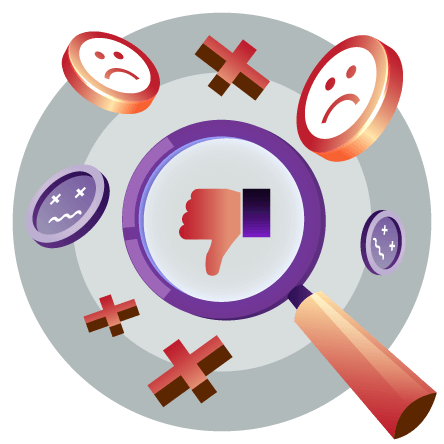
That said, here are a few potential drawbacks to starting your SEO strategy:
- SEO takes time. As discussed above, SEO is not a quick fix. It can take months, or even years, to start seeing results from your SEO efforts. The good news is, once it kicks in, SEO pays dividends in the long term.
- The internet is competitive. The truth is, you’re never going to outrank bigshots like Google, Microsoft, and the BBC. They have the advantage of being established, with years of SEO and great content to show for it. Trying to keep up with them is a losing battle. Instead, focus on SEO for your niche or sector. As long as you’re doing better than your competitors, you’re on the right track.
- Changing algorithms can be scary. Let’s say you’ve been following SEO best practices for months, and then one day your rankings drop. Google has a habit of changing its algorithms, which can be frustrating for business owners who are trying to keep up. The best thing you can do is stay on top of the latest SEO news and trends so that you’re always ahead of the game.
What is Pay-Per-Click (PPC)?
Pay-per-click (PPC) is a type of online advertising where businesses can pay to have their ads placed on search engines, websites, and social media platforms.
When someone clicks on one of these ads, the business will then pay the publisher a small fee.
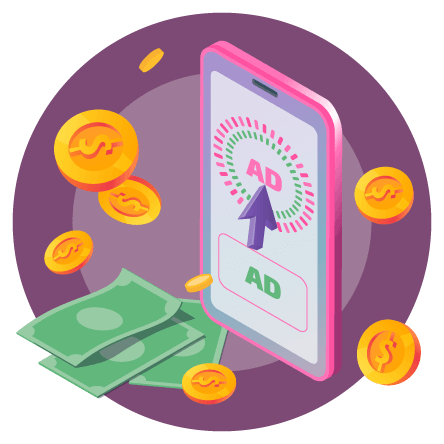
For example, let’s say you own a pet store and want to advertise your business on Google. You could create an ad that says “Adopt a dog today!” and then pay Google every time someone clicks on your ad. If someone were to click on your ad and then visit your website, you would then have to pay Google a small fee.
PPC can be an effective way to drive traffic to your website, generate leads, and grow your business. However, it’s important to note that PPC is not a sustainable long-term marketing strategy. Once you stop paying for ads, traffic will also stop.
That aside, PPC ads can be a great way to supplement your SEO efforts, so that you’re always ahead of the game.
Examples of SEO tactics
There are many types of PPC tactics you can use to supplement your SEO efforts:
- Targeted ads: Ads that are specifically targeted to keywords related to your product or service. These ads can appear on SERPs, websites, and apps.
- Display ads: These are the banner ads you see on websites. Display ads are used to raise brand awareness and are not targeted to specific keywords.
- Retargeting ads: These are the ads that follow you around the internet after you’ve visited a website. They’re designed to remind you of a product or service you were interested in but didn’t purchase.
- Broad match ads: These are ads that are not as targeted as other types of PPC ads, but they can still be effective in reaching a wider audience.
- Google Search Ads: If you want to appear at the top of a Google search, you can pay to have your website show up there. Google Search Ads are great for getting in front of people who are already interested in what you’re selling.
Pros of PPC
If you’re thinking about investing in PPC, it’s important to understand the pros and cons.
Here are some of the main benefits of PPC.

PPC improves your reach
One of the biggest benefits of running PPC campaigns is that they can help you reach a wider audience. By targeting your content at specific keywords and audiences, you can make sure that your ads are shown to people who are already interested in what you have to say.
PPC brings quick results
While SEO can take months or even years to improve your visibility in organic search results, you can see results from a PPC campaign much more quickly. This is because with PPC, you’re paying for your website to be seen by people who are already searching for keywords related to your business.
PPC Is trackable
Analyzing and optimizing your PPC campaigns is easier than SEO because the results are trackable. Google Analytics can show you how your PPC ads are performing, how many clicks they’re getting, and what kind of conversion rate you’re seeing. While SEO is often a guessing game, PPC lets you track your progress and adjust your campaigns accordingly.
PPC allows you to test different messages
Another benefit of PPC is that it allows you to test different messages and call-to-actions to see what works best with your target audience. This can be a great way to improve your organic SEO efforts, as you can take the lessons learned from your PPC campaigns and apply them to your website.
PPC is more flexible than SEO
When it comes to SEO, you’re at the mercy of Google’s algorithm updates. If your website gets hit by a Penguin or Panda update, it can take months or even years to recover. With PPC, on the other hand, you have complete control over your campaigns. If you’re not happy with your results, you can simply adjust your bids or ad copy and see an immediate improvement.
Cons of PPC
Like SEO, PPC also has it’s downside.
Now that you know the benefits of PPC, let’s look at some of the pitfalls.
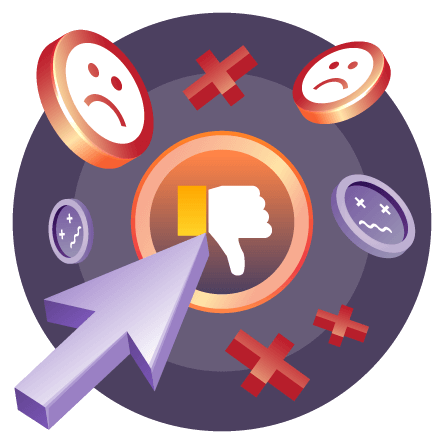
- PPC is a short-term strategy. PPC costs money, which is a finite resource for most businesses. If you don’t carefully consider your long-term SEO strategy, you could end up spending a lot of money on PPC with nothing to show for it in the end.
- PPC can be risky. If you don’t know what you’re doing, it’s easy to waste a lot of money on PPC without seeing any results. Before you start investing in PPC, make sure you understand the basics of how it works.
- PPC is not a replacement for SEO. Although PPC can help you get traffic in the short term, it’s not a substitute for SEO. SEO should be seen as an investment in your long-term website success.
SEO vs. PPC: The breakdown
So, what’s better, SEO or PPC?
The short answer is: both.
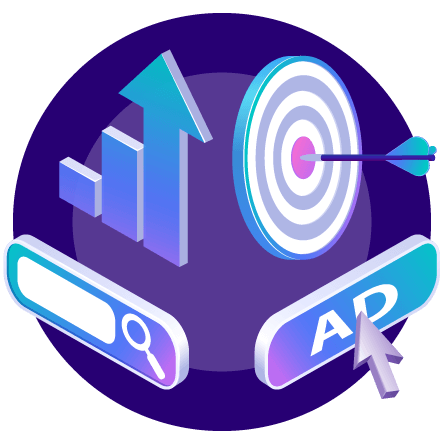
SEO and PPC work best when they’re used together. PPC brings in short-term, relevant traffic, and SEO ensures that traffic continues to flow long-term.
For example, if you’re trying to rank for a certain keyword, you can use PPC to bid on that keyword and get your website to appear at the top of the SERP while you work on SEO tactics to organically rank for that keyword.
By investing in both SEO and PPC, you can get the best of both worlds: traffic from organic search results and traffic from paid ads.
But if you had to choose one, which should you invest in?
The answer depends on your goals and your budget. If you’re looking for immediate results in the short term, PPC might be the right fit.
But, if you want your website to grow and improve over time, choose SEO.
SEO vs. PPC: Frequently asked questions
The most common SEO vs PPC questions answered.

- Does PPC Help SEO?
SEO and PPC have a harmonious relationship. Not only does SEO help improve your PPC campaigns, but PPC can also support SEO efforts. - What’s the difference between organic and paid search results?
Cost. Organic search results are unpaid listings that are based on relevance to the user’s search query. Paid search results, on the other hand, are ads that you pay for. - Can you pay Google for SEO?
No. While you can pay Google for ads, you cannot pay Google to organically rank your website higher in search results. - Can I do SEO on my own?
Yes, technically anyone can start an SEO strategy with a little internet research. That said, SEO is a large and complex subject that is constantly changing. Hiring an SEO expert can go a long way in ensuring you get the highest returns for your investment.
SEO vs. PPC: Conclusion
SEO and PPC are both important tools for any business that wants to be visible online.
However, it’s important to remember that SEO is a long-term strategy while PPC is a short-term strategy.
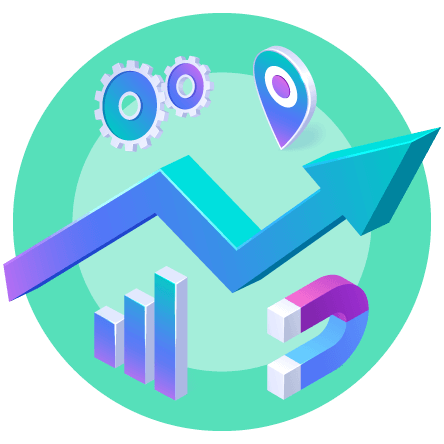
If you’re looking to grow your business long-term, and create a sustainable online presence, SEO is the way to go. However, if you need quick results and are willing to invest in paid advertising, PPC can be a powerful tool.
Our recommendation is to use both in tandem, where SEO will help you rank organically and PPC will help you fill in any gaps.
If you’re looking for SEO or PPC services in Birmingham, or around the UK, reach out to ALT Agency. We’re experts in PPC and SEO and can help you create a long-term strategy that will help you grow your business online. Get in touch to learn more.
Image credits:
designed by Upklyak – Freepik.com
designed by Redgreystock – Freepik.com



 Nov 21, 2022
Nov 21, 2022 





 Contact us
Contact us 
